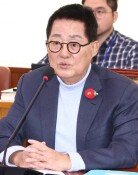Gov't announces new policies supporting small business owners
Gov't announces new policies supporting small business owners
Posted January. 04, 2024 07:59,
Updated January. 04, 2024 07:59
The South Korean government and the ruling People Power Party have agreed to raise the income deduction rate for expenditures made in traditional markets from 40 percent to 80 percent during the first half of the year. They also extended temporary tax credits that are given to businesses when they make capital expenditures until the end of this year. Despite all the efforts to recover people's livelihoods and boost investment, mom-and-pop stores argue that more practical measures should be taken at a time when they are palpably affected by the slowing economy as consumers tighten the purse strings amid the high-interest rates.
On Wednesday morning, the government and the ruling party issued a set of policy changes in a consultative meeting held at the National Assembly to set the directions of economic policies for the year 2024.
Many new policies mostly focus on supporting small business owners, including traditional market vendors. The government and the ruling party plan to cut back on electricity bills by 252 billion won for 1.26 million businesses - 200,000 won for each – in the first quarter. They will also reduce the burden of interest payments for self-employed workers and small business owners by over 2.3 trillion won based on the financial industry-supported "win-win” finance programs and government funds. The plan to increase the income deduction rate for consumers in traditional markets is part of efforts to encourage consumption in traditional markets.
However, small business vendors in traditional markets are skeptical of the practicality of the new measures amid the worsening economic sentiment on the frontlines of the economy. After all, older consumers, the main target group in traditional markets, usually use cash. A vendor working in a market in Gwangju said, "Those over 60 who often come to traditional markets prefer cash to credit cards,” arguing that traditional markets are unlikely to see the benefits of tax deduction.
Likewise, mom-and-pop stores raised doubt about how effective reduced electricity bills will be. "I remember being super busy submitting required documents every time such measures were released,” said a café owner in his 50s who runs the place on his own. "If it is the case this time as well, those who run stores by themselves, just like me, will have no time to submit applications even if they are eligible to receive benefits.”
Do-Hyong Kim dodo@donga.com







